Introduction
Manoj Kumar Biography is more than just a reflection on a cinematic career—it is a narrative that intersects with India’s post-independence cultural evolution. As a prominent figure in Bollywood, Manoj Kumar’s work embodied the values of patriotism, resilience, and social consciousness. His films often mirrored the collective aspirations of a young, developing nation. From portraying freedom fighters to advocating for farmers and soldiers, his stories connected with millions across generations. This article takes a deep dive into the defining chapters of his life and legacy.
1. Humble Beginnings Shaped by History
Manoj Kumar was born Harikrishan Giri Goswami on July 24, 1937, in Abbottabad, a city that was part of British India at the time and is now located in Pakistan. His early life was marked by the historical upheaval of the Partition of India in 1947, an event that reshaped millions of lives overnight. His family, like many others, migrated to Delhi amid chaos and uncertainty, seeking stability in a newly independent India.
It was in Delhi where Manoj Kumar’s formative experiences took place. Deeply influenced by cinema, especially the performances of Dilip Kumar, he began nurturing dreams of becoming an actor. As a tribute to his idol, he adopted the screen name “Manoj Kumar”—a decision that signaled not just admiration but a conscious commitment to following in the footsteps of India’s cinematic legends.
These early life experiences, marked by displacement and national rebirth, would go on to shape his cinematic worldview, often reflected in the patriotic and socially driven themes of his films.
2. Early Steps into Cinema
Manoj Kumar’s entry into Bollywood was modest yet meaningful. In 1957, he made his debut in the film Fashion, playing a small role. While the film itself didn’t make waves, it provided Manoj with his first on-screen experience, a valuable stepping stone in a notoriously competitive industry.
Over the next few years, he took on various roles—sometimes as a supporting actor, other times in mid-tier films—that slowly started building his recognition. Unlike some stars who rise overnight, Manoj’s ascent was gradual and earned, rooted in consistent performances, charm, and a developing screen presence.
By the early 1960s, filmmakers began to notice his versatility and ability to connect emotionally with audiences. This recognition led to significant roles in films that would eventually transform him from a rising actor to a box-office mainstay.
3. Rise to Fame with Nationalistic Roles
The turning point in Manoj Kumar’s career came in the mid-1960s, a period when Indian cinema was increasingly experimenting with themes of identity, nationalism, and reform. It was during this time that he starred in a string of successful films—Hariyali Aur Raasta (1962), Woh Kaun Thi? (1964), and Himalaya Ki God Mein (1965)—each of which showcased his range as a romantic and dramatic actor.
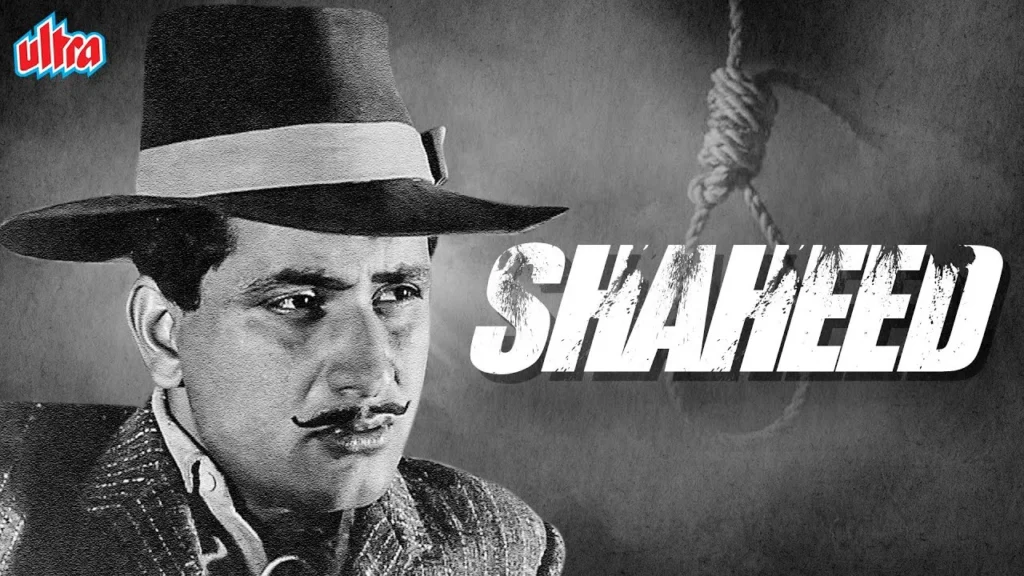
However, it was the 1965 film Shaheed that truly defined his on-screen persona. In it, he played the iconic role of Bhagat Singh, one of India’s most revered freedom fighters. The film struck a chord with audiences, and Manoj’s powerful portrayal resonated so deeply that he began to be associated with patriotic roles from that point forward.
Building on this success, he took a bold step as both actor and director in the 1967 film Upkaar. Inspired by Prime Minister Lal Bahadur Shastri’s call of “Jai Jawan Jai Kisan” (Hail the Soldier, Hail the Farmer), Manoj depicted a man who straddled both roles—a soldier who returns to his village to support the agrarian community. This heartfelt performance earned him critical acclaim and the National Film Award, and the public fondly began referring to him as Bharat Kumar—a symbolic representation of the ideal Indian citizen.
4. Landmark Films That Defined a Generation
Over the next decade, Manoj Kumar solidified his reputation as a filmmaker who championed Indian values and tackled social issues. His films were never just about entertainment—they were cinematic essays on what it meant to be Indian during a time of social and economic transformation.
• Purab Aur Paschim (1970)
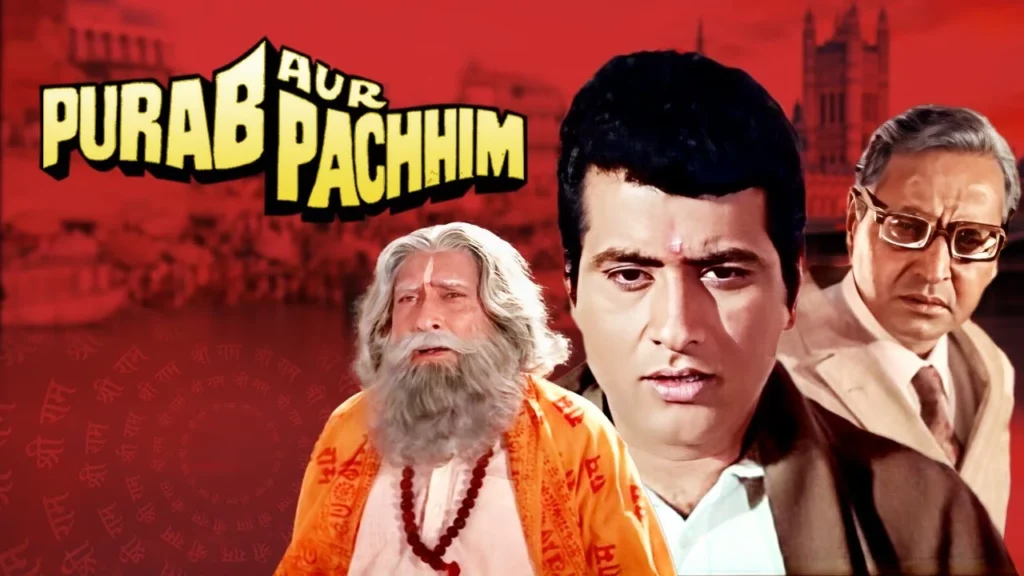
This film juxtaposed Eastern traditions with Western influences. Through its storyline, Manoj explored cultural identity and moral values, especially in the context of Indian immigrants struggling to stay connected with their roots. It was a bold critique of Westernization, while still advocating for cultural balance and mutual respect.
• Roti Kapda Aur Makaan (1974)
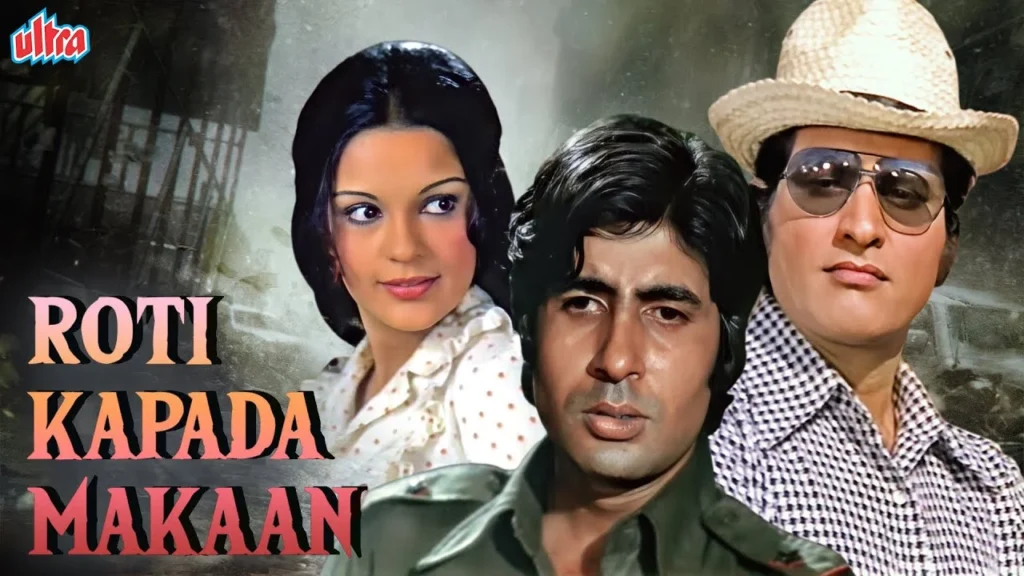
Translating to “Food, Clothing, and Shelter,” this film highlighted basic human needs and the social disparities faced by the common man. It tackled corruption, unemployment, and the breakdown of moral values in society. The title became a slogan in itself, and the film’s emotional intensity ensured its box-office success and critical acclaim.
• Kranti (1981)
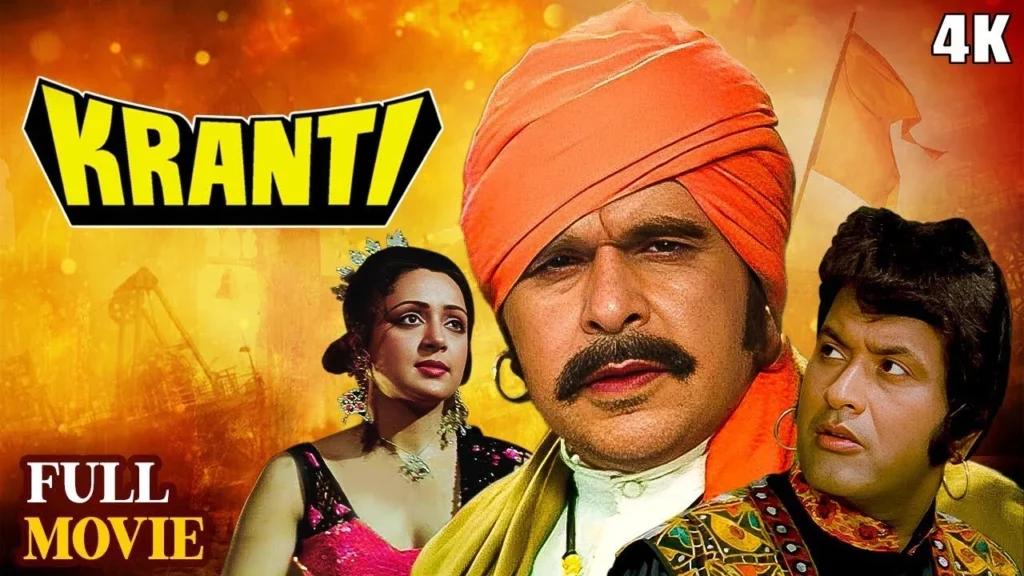
A historical epic set during the Indian independence movement, Kranti became one of the highest-grossing Indian films of all time. Featuring an ensemble cast and high production value, the film cemented Manoj Kumar’s status not just as a patriot but as a master storyteller with a vision for grand narratives.
These films weren’t just cinematic milestones—they became social commentaries that resonated across generations.
5. Honors and Accolades Reflecting a Storied Career
Recognition came not just from audiences but from institutions and the government, cementing Manoj Kumar’s place in the annals of Indian cinematic history.
- He received the National Film Award for Upkaar in 1967, acknowledging both his direction and performance.
- Over the years, he won seven Filmfare Awards, reflecting his consistent excellence in acting, direction, and storytelling.
- In 1992, the Government of India honored him with the Padma Shri, one of the country’s highest civilian awards, for his contributions to the arts.
- His crowning glory came in 2015, when he was awarded the Dadasaheb Phalke Award, the most prestigious recognition in Indian cinema. This award is reserved for individuals who have made lifetime contributions to the industry, and in Manoj Kumar’s case, it was a tribute to his enduring influence on both film and society.
6. Personal Life Rooted in Values
While his professional life was always in the spotlight, Manoj Kumar preferred to keep his personal life low-key and grounded. He was married to Shashi Goswami, and the couple had two children, including Kunal Goswami, who followed in his father’s footsteps with a brief acting career.
Despite being a public figure, Manoj Kumar was known to lead a disciplined, humble lifestyle. Friends and co-stars often described him as deeply spiritual, thoughtful, and emotionally connected to the idea of Bharat (India) not just as a country, but as a living ideal.
His family values, humility, and sense of responsibility often mirrored the characters he played on screen.
7. A Legacy That Transcends Generations
Manoj Kumar’s impact on Indian cinema extends far beyond box-office numbers or award tallies. He was a pioneer of purposeful cinema, one of the earliest mainstream artists to weave nationalism and social themes into commercially viable films.
Even today, his movies serve as case studies in film schools and are referenced by contemporary filmmakers who admire his ability to blend message with mass appeal. His portrayal of Indian heroes—both real and fictional—offered a vision of moral strength and national unity that continues to inspire.
Following his passing on April 4, 2025, at the age of 87, tributes poured in from across the globe. Politicians, film personalities, and everyday fans remembered him not just as an actor, but as a symbol of India’s post-independence ethos.
His legacy lives on—not just in his films, but in the values they embodied.
Conclusion
Exploring the Manoj Kumar Biography reveals a man whose life was as cinematic as the roles he portrayed. From refugee child to national icon, from actor to auteur, his journey is a testament to dedication, patriotism, and artistic vision.
His films taught generations about love for the nation, empathy for the underprivileged, and the importance of cultural identity. Through his work, Manoj Kumar proved that cinema can be more than entertainment—it can be a force for social good.


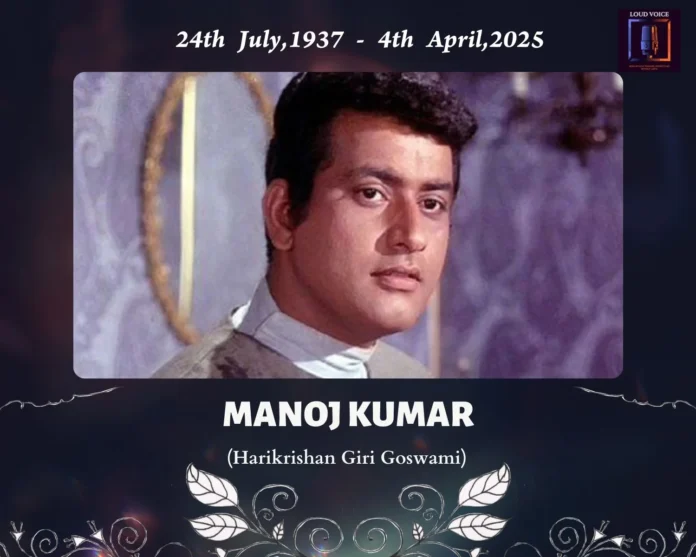
Manoj Kumar’s films instilled a deep sense of patriotism in all of us. His legacy will continue to inspire generations.